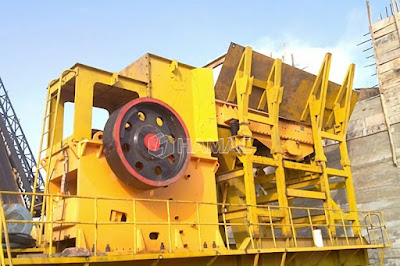In the ever-evolving world of construction, efficiency, precision, and sustainability have become paramount. To meet these demands, the construction industry is embracing a silent hero that is revolutionizing the way we build – cement silos. These towering structures are not just for storage; they hold the power to transform construction practices and redefine the future of the industry.
The Backbone of Construction:
Cement silos serve as the backbone of any construction project, whether it's a skyscraper in the heart of the city or a residential home in the suburbs. Traditionally, cement was stored in bags or transported in bulk, which often led to logistical nightmares, material wastage, and increased costs. However, cement silos have changed the game.
Massive Storage Capacity: Cement silos can store large quantities of cement, eliminating the need for frequent deliveries and reducing downtime on the construction site.
Material Integrity: Sealed and airtight, cement silos ensure that the stored cement remains uncontaminated and free from moisture, preserving its quality.
On-Demand Availability: With cement silos, cement is readily available when needed, increasing productivity and reducing construction time.
Cost Efficiency: Minimized material wastage, reduced labor costs, and optimized logistics all contribute to substantial cost savings.
What truly makes cement silos game-changers is their infusion with cutting-edge technology:
Automation: Modern cement silos are equipped with automated systems for monitoring and controlling cement levels, ensuring a constant and consistent supply.
Data Analytics: Smart cement silos can provide real-time data on cement usage, enabling construction managers to make informed decisions.
Remote Access: Remote monitoring and control allow for adjustments and troubleshooting without being physically present at the site.
Environmental Impact:
In an era of increasing environmental consciousness, cement silos also play a vital role in sustainability:
Reduced Carbon Footprint: Fewer cement deliveries mean fewer trucks on the road, reducing carbon emissions.
Waste Reduction: Precise dispensing from cement silos minimizes material waste, contributing to a greener construction process.
Long-Term Sustainability: Cement silos are built to last, offering a durable and sustainable solution for years to come.
The construction industry is on the cusp of a transformation, and cement silos are at the forefront of this revolution. They offer unmatched efficiency, precision, and sustainability that not only streamline construction processes but also reduce environmental impact. The power of cement silos lies in their ability to optimize every facet of construction, making them an indispensable tool for the builders of today and tomorrow. As construction practices continue to evolve, these towering giants will remain a cornerstone of innovation in the industry, ensuring that the future of construction is one that is more efficient, cost-effective, and environmentally responsible. Check more from our web:



.jpg)



